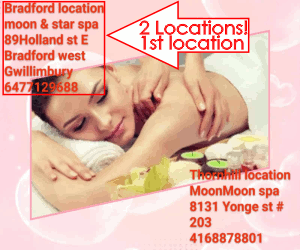M
mnews
Guest

This is the second article in a series examining the illicit massage industry prompted by a recent undercover sting conducted by Osceola County Sheriff’s Office. The final article will explore solutions to dismantling illicit massage businesses—and include comments from a manager of one of the businesses targeted by the Sheriff ’s Office.
Driven by an estimated 13,000 businesses nationwide—nearly 10% of them in Florida—the illicit massage industry is believed to be worth as much as $4 billion. The system thrives by exploiting ancient cultural traditions, immigration loopholes, fraudulent massage licensing and a revolving door of vulnerable women, many of whom are of Asian descent.
Questions raised about Osceola sting
The Osceola County Sheriff ’s Office recently conducted an undercover prostitution sting at local massage businesses, resulting in the arrests of four Asian women who shared several known signs of human trafficking. The operation raised concerns for potentially further exploiting women, while also placing agents in compromising situations since they undressed and at least one was touched inappropriately before arrests were made. Experts say such stings are outdated, risky and largely ineffective at impacting illicit massage businesses (IMBs). The sheriff ’s office has refused to comment, citing an ongoing investigation.
Experts say women working in IMBs are often out of options and desperate to escape conditions in their home countries. Chris Muller-Tabanera, chief strategy officer at The Network—an intelligence-driven counter-human trafficking organization—said most of them are older, unmarried, childless and from poor rural areas. In China, they are called “sheng nu” or “leftover”— women who serve no purpose, making them prime targets for overseas IMBs.
Debt, cultural shame and a hidden workforce
Collier County Sheriff’s Lt. Chris Williams—an expert in IMBs who recently led efforts to shut down more than a dozen such operations in South Florida—explained that many such women are initially recruited through the Chinese messaging app WeChat, lured by promises of legitimate work in the U.S.
“Then they get here, and it’s not what they were promised,” said Williams.
According to Williams, recruiters often coach women to claim religious asylum upon arrival. They’re told
Experts say an estimated 13,000 businesses nationwide bolster an illicit massage industry believed to be worth as much as $4 billion. (Graphic AI generated) they can quickly earn massage licenses with travel expenses paid. Once here, they learn the job involves commercial sex and are sometimes saddled with tens of thousands of dollars in debt for travel, visas, licenses and living expenses. Unable to speak English or seek help, they succumb to the work and then are usually moved among cities every few weeks. “New girls” is a frequent selling point found on IMB ads on sex service websites. Many of the women carry a deep sense of cultural shame about their work, which prevents them from acknowledging they’re being exploited and telling anyone about it.
“They don’t want their families to know what’s happening,” said Williams. “Even being the victim of a sex crime is considered dishonorable. It’s not something they’re willing to admit—sometimes not even to themselves.”
According to Muller-Tabanera, IMBs operate like a franchise system. Much like chain restaurants, IMBs rely on centralized advertising networks and standardized operations, allowing them to quickly expand while maintaining the appearance of legitimate businesses.
“You have people who try to own a couple [businesses] in an area, or others who have regional presence across multiple states.”
Williams added that “the storefront is just the tip of the iceberg.” Behind it are recruiters, advertisers, landlords and rotating crews of workers. The storefront setup provides cover for both traffickers and buyers, creating a “plausible deniability” that shields the businesses from scrutiny while allowing exploitation to occur openly.
Widespread licensing fraud fuels the system
To help convey legitimacy, IMBs usually ensure their masseuses are licensed. However, Williams described a rampant system of fraud within the massage licensing process, involving diploma mills, fake training certificates and even individuals paid to take the Massage and Bodywork Licensing Exam (MBLEX) on someone else’s behalf. He said hidden cameras have been used to video record test questions and build massive question banks. Women may also be coached to memorize trigger words linked to correct answers through crude translation.
“They don’t speak English. They don’t know massage. They memorize just enough to pass,” Williams said. “Some even hire men to take the test in wigs using fake IDs.”
Completing the fraudulent licensing and immigration process typically costs $10,000 to $30,000, placing women deep into debt bondage and making escape from the industry nearly impossible.
A search of the Florida Board of Massage Therapy’s public licensing database shows active massage therapy licenses under the same names as three of the women arrested in the Osceola County sting. However, the license of one of the women with the same name was listed as “null and void” for failing to renew.
Debra Persinger, executive director of the Federation of State Massage Therapy Boards (FSMTB), said her organization is well aware of the fraud enabling trafficking operations and is taking direct action.
“This is an ongoing quest,” she said.
Without disclosing to fraudsters all their methods, Persinger said using high-security testing facilities and biometrics are among the ways they are combating bad actors. Still, the sex trade continues to infiltrate the legitimate massage industry in all 50 states, she said.
“There’s a constant flow of people and these exploited women trying to come into the profession. They try and operate under the guise of a legitimate license. We can catch them, but... this doesn’t stop. We can’t say, ‘Oh good, our work here is done.’”
Massive client base
One customer, who asked not to be identified, said he’s been going to IMBs in Central Florida for the past 30 years. In addition to word of mouth, he said there are certain cues he looks for to know if a place is likely to offer an erotic massage.
“They’re the ones that have ‘Asian’ or ‘Sunshine’ in the name, they stay open until 11 o’clock at night, they have a neon sign that says ‘Open.’” He said he has never had the feeling that a masseuse was being coerced or harmed in any way and has even gotten to know at least one whom he says he has seen several times over the years.
“She told me stuff about her sisters and going home to Korea.”
Williams said some women work their way up into management roles— known within the industry as “mamasans.” Often former workers themselves, mamasans oversee daily operations and coordinate logistics.
“They save their money, learn the business and they can buy their own business for $50,000 to $100,000,” he said.
If you are a victim of human trafficking or suspect trafficking activity, call the National Human Trafficking Hotline at 888-373-7888 or text 233733.



























































































